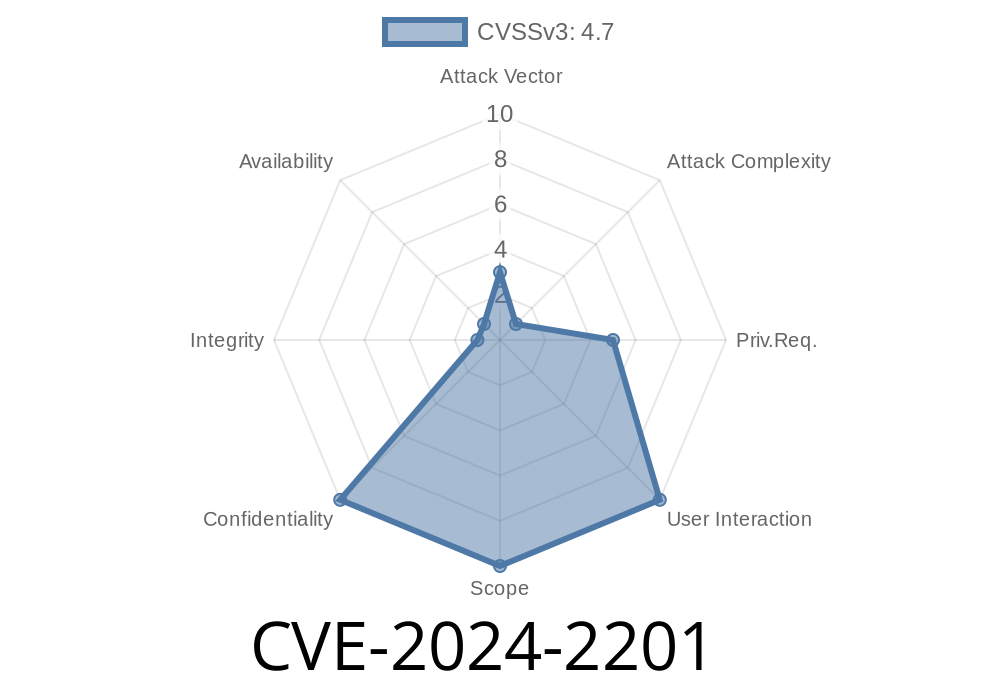In early 2024, researchers uncovered a new variant of the infamous Spectre v2 vulnerability, now tracked as CVE-2024-2201. What makes this specific bug so alarming is that it enables attackers to bypass all previously deployed mitigations—even the latest control flow (FineIBT) defenses—and read sensitive Linux kernel memory on modern Intel CPUs. This post breaks down the exploit, the threat it poses, and what you can do.
🚨 Why CVE-2024-2201 is a Big Deal
Spectre-class bugs have haunted CPUs since 2018, leaking secrets by tricking modern processors into making "wrong guesses" when running code. System vendors rushed a wide range of fixes—hardware, software, microcode, and toolchain. By 2023, most experts thought the worst was over, especially after Linux adopted FineIBT, an advanced Intel feature sharply reducing speculative code gadgets.
But CVE-2024-2201 cuts through these defenses. Using clever timing and code tricks, attackers can still pull arbitrary kernel data from memory, even on up-to-date systems with all mitigations enabled.
🤔 How Does the Exploit Work?
The new attack targets the *indirect branch prediction* core mechanism, a cornerstone of branch speculation. Intel CPUs use a hardware predictor so that when the code hits a jump (like a function pointer) and the real destination isn't known, the processor tries to "guess" the correct address. This is what Spectre v2 originally attacked.
FineIBT (Fine-Grained Indirect Branch Tracking), rolled out in late 2023, added special "endbr" markers throughout kernel code to fence off most previous attack vectors.
But here's where CVE-2024-2201 shines:
It exploits low-level hardware nuances *below* the FineIBT and other software-level security controls. It works like this:
An unprivileged attacker (like any regular Linux user) runs specially crafted user code.
2. The code sets up a branch prediction "poisoning" scenario. Basically, it tricks the CPU into guessing a kernel jump in a way that leaks kernel memory data in a side-channel.
3. The attacker times cache reads/writes to infer the kernel data from observed timing differences.
Even with FineIBT enabled, the CPU fallback path used by kernel code still lets speculative execution touch unreachable code regions. The attacker measures side effects, leaking bits from arbitrary memory addresses.
🖥️ Proof-of-Concept (PoC) Snippet
Below is a _highly simplified_ version of a user-space attack that demonstrates the basic leakage concept. This is *for educational purposes only*—never deploy such code maliciously.
// CVE-2024-2201 simplified PoC: Leaks one kernel byte (theory)
#define SECRET_PAGE xffff88ffffff000UL
unsigned char probe[256 * 4096];
void victim_function(size_t kernel_offset) {
// The CPU is speculatively tricked into accessing this page
unsigned char value = *(unsigned char *)(SECRET_PAGE + kernel_offset);
probe[value * 4096] += 1;
}
// Attacker's flush+reload side-channel
void leak_byte(size_t offset) {
int i, mix_i, timing[256];
// Flush probe array from cache
for (i = ; i < 256; i++)
_mm_clflush(&probe[i*4096]);
// Speculative contamination
victim_function(offset);
// Measure access timing
for (i = ; i < 256; i++) {
size_t t1 = rdtsc();
(void)probe[i*4096];
size_t t2 = rdtsc();
timing[i] = t2-t1;
}
// Highest timing hit = leaked kernel byte value
}
*Note:* This is a sketch. Real-world exploits do much more to successfully cross kernel boundaries and avoid crashing on modern kernels—but the principle is the same: induce speculation, poison the predictor, measure cache effects.
🔎 Original References & Research
- CVE Entry for CVE-2024-2201
- Spectre Returns! New speculative execution attacks (paper PDF, 2024)
- FineIBT: Intel's Kernel Mitigation Dissected
- Linux Kernel Spectre docs
All Intel CPUs supporting Spectre v2, especially recent chips (2015+)
- Any Linux distro, even the latest with all spectre/meltdown workarounds
Systems using FineIBT, Retpoline, or other industry mitigation
At the time of writing, AMD CPUs appear unaffected by this specific issue, though they remain vulnerable to other Spectre family attacks.
The CVE landed in early 2024, and patches are under rapid development. As of now
- Update your kernel: Watch for patches from your distro or upstream that reference "CVE-2024-2201" or "Spectre v2 variants"
Minimize user access: Don't run untrusted code as normal users if possible.
Longer-term:
Intel is reviewing hardware/firmware updates. Some researchers suggest that completely fixing this vector may require new CPU designs—meaning it could be a while before *all* risks are closed.
🔮 What Does This Mean for Security?
- If you run a multi-user system: Unprivileged users can (in theory) leak kernel secrets again, including passwords, cryptographic keys, or anything in kernel memory.
- Cloud providers: You must assume tenant isolation is threatened *again*—VM escape and kernel memory leaks are back on the table.
- Personal devices: Less risk (attackers must run code), but privacy is still at risk if malware lands on your machine.
📝 Conclusion
CVE-2024-2201 is the latest reminder that speculative execution vulnerabilities are far from beaten. Each new variant finds a different way to bypass even the best software defenses—often because hardware prediction mechanisms are so complicated and deeply embedded.
*Stay patched, follow announcements, and keep untrusted code far away from valuable workloads.* No matter how secure you thought your system was, Spectre (and its descendants) keep reminding us: "Speculation is never safe."
*For more technical info and updates, see the Spectre research paper (Fall 2024 USENIX) and monitor the Linux Kernel HW Vulnerabilities Guide.*
Timeline
Published on: 12/19/2024 21:15:08 UTC
Last modified on: 01/09/2025 17:15:12 UTC
